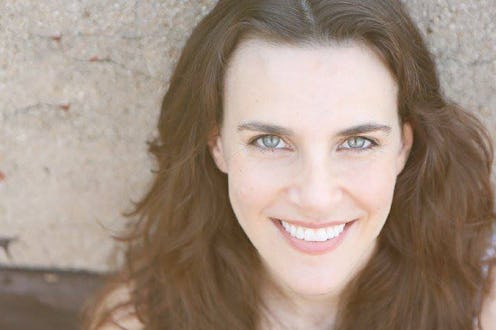Books
Heartache and Hope in 'Chasing Chaos'

As the famous fable goes, a little girl is running up and down a beach, picking up starfish that have been washed up on shore and hurling them, one by one, back into the sea. A passer by tries to dissuade her from her apparently hopeless plight telling her she simply “cannot save all of them”. To this, the little girl replies, looking at the starfish still in her hands, “Perhaps not, but I can save this one”.
The story is taught time and time again across the world as an example of the persistence of the human spirit against a seemingly insurmountable challenge, and this is the youthful idealism with which we meet Jessica Alexander at the beginning of her book Chasing Chaos: My Decade in and Out of Humanitarian Aid (Broadway).
The memoir covers Alexander’s first ten years out of college, during which she follows in the footsteps of many an optimistic young do-gooder, traveling the harshest faraway places in the hopes of making a difference. Full of optimism, and more than a little uncertainty, Alexander recounts her initial months abroad in Rwanda as a culture shock unlike any she had anticipated, the hard climate and harder circumstances made more so by her apparent impotence to affect real change. While many might have been disillusioned, the experience infected her with an unquenchable thirst for the world of humanitarian aid. We follow her as she navigates North Africa, from working to provide clean water in the refugee camps of Zalingei, Darfur, through post-Tsunami Indonesia and ultimately to Haiti, working on the earthquake relief efforts.
The descriptions of the dire circumstances she comes across are described with all the painful details one would expect. There is no palliative glamour to this story, no Eat, Pray, Love quest for meaning in the many indulgences of foreign cuisine. Yes, admittedly, the initial trip is partially an attempt on the part of Alexander to avoid dealing with the recent death of her mother. There are also anecdotes detailing the aid worker party scene, not unlike that of a college fraternity house, drunken and somewhat incestuous in nature. Yet while she makes no attempt to absolve herself from her participation in the more clandestine activities while abroad, it is made clear that such social escapes are nothing if not necessary, given the daily onslaught of encountering such extreme poverty and, in many cases, cruelty.
A turning point for Alexander, and a remarkable moment in the story, occurs upon her return to the United States after her first tour in Africa. Her plane lands in the middle of the 2003 New York City Blackout, and she describes the experience of observing Manhattanites navigate life sans modern conveniences with fascination:
People went without air conditioning, computers, flushing toilets, refrigerators. They slept on the sidewalks because they couldn’t make it up the stairs to their apartments at the tops of their skyscrapers. But New Yorkers could rest assured that these things would be functioning soon enough.
This, with her experiences of truly impoverished living still fresh in her mind, is what compels her to continue her work in the aid sector, and to decide to commit to it as a full time career. As she notes, still stunned by the metropolitan response to the blackout, “Six-packs? Pizza? Pillows? This was unlike any refugee camp I had seen.”
There are moments amidst what can, at times, appear to be a story of a hopeful young woman’s descent into disillusionment, where we glimpse the passion and genuine hope with which she entered the continent. In Darfur, she encounters a newborn girl, plagued with an ailment from which she will die without treatment. Although her fellow relief workers, having seen this situation time and time again, insist there is no solution, she works tirelessly to find away around the red tape that surrounds aid organizations abroad, to get the child the medical attention she needs. In these moments that, even as she barrels towards burnout (she is prescribed Xanax in advance of her two year Fulbright in Sierra Leone) there is a persistence of hope in the effectiveness of the aid program as a whole.
Refreshingly absent in Chasing Chaos are any declarations of grandeur or of superior moral fiber. Rather, Alexander’s honesty about her own ignorance on the true severity of the conditions in the places she visits is precisely what makes her remarkable story so accessible. Even now, after a decade working with multiple humanitarian organizations, the author still makes plain how much she has to learn.
Alexander is proud of her achievements, and certainly should be, but it is in her detailing of the vast room for improvement in the system that she focuses, with a dry wit and healthy dose of honest self-evaluation, that we are able to connect with her experiences on a more personal level. We are all the more fortunate for it.